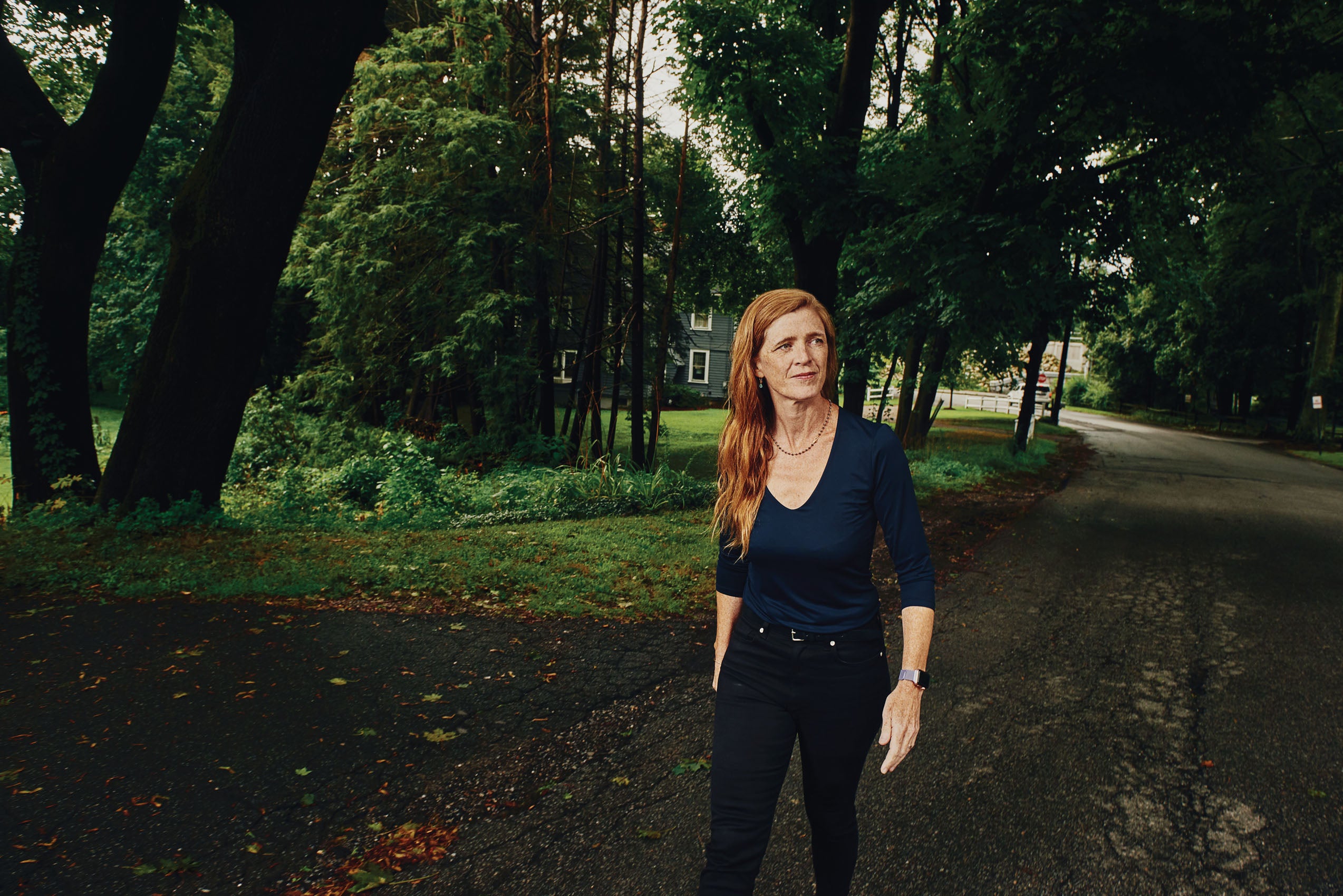In the spring of 1995, when Samantha Power was reporting on the war in Bosnia in the hope of spurring a U.S. intervention, she received an acceptance letter from Harvard Law School. Intrigued by the growing movement around what would become the International Criminal Court, Power had applied with the intention of eventually bringing war criminals like Radovan Karadzic and Ratko Mladic to justice.
But a friend and mentor who saw Power’s future differently called to intervene. “You do not need a piece of paper to legitimize yourself,” Richard Holbrooke, then U.S. assistant secretary of state, told her, offering her a job as a junior aide.
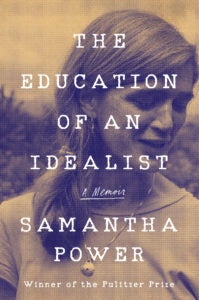
Power was over the moon—she could influence policy much more directly by working with a senior government official than was possible through journalism. But in the end, she turned down the dream job: “I had begun to fixate on the notion that in law school I could acquire technical, tangible skills that would ultimately equip me to make a bigger difference than I would by putting words to paper, even as an aide to a U.S. envoy,” Power ’99 writes in her recently published memoir, “The Education of an Idealist.”
Reading it, one is struck again and again by similar inflection points that have influenced her life’s trajectory. “Education” ranges from Power’s earliest years in Dublin to her immigration to the United States at the age of 9; from her awakening to life-or-death implications of international events during the Tiananmen Square protests to the decision to become a freelance journalist; and from the publication of her Pulitzer Prize-winning book, “‘A Problem from Hell’: America and the Age of Genocide,” to a 2005 dinner with then-Sen. Barack Obama ’91 that ultimately brought Power to Washington—first as a foreign policy fellow on his Senate staff, then as a senior adviser on his campaign, and then as a special assistant on human rights and multilateral affairs. In 2013, she was named the 28th U.S. ambassador to the U.N.
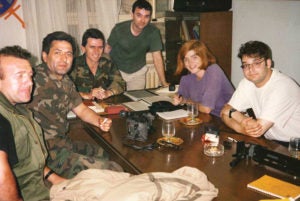
“When I left government, I had no plans to write a book,” says Power, reached by phone just before the start of her book tour. But by the late spring of 2017, she felt the nagging need to make sense of her time in government. Back at HLS and the Harvard Kennedy School, where she has a joint appointment, Power also heard many of the same questions: What did you learn? What did you wish you’d known going in? “That’s when I decided I wanted to try to distill the experience and what I took away from it—with my students in mind,” she says. “The number one variable that will determine whether we’re going to be OK as a country is whether or not our talented young people dedicate themselves to improving their communities or getting involved in public service.” By recounting her experience as a relative newbie and showing the possibility in government, Power hopes to inspire at least a few to do so.
Readers will also enjoy a refreshing takeaway: Power’s career success has arisen less from any carefully plotted calculations than from intuition and what she refers to as the “X test”—in other words, if, in trying to achieve Y, the most you achieve is X, is an action still worthwhile?
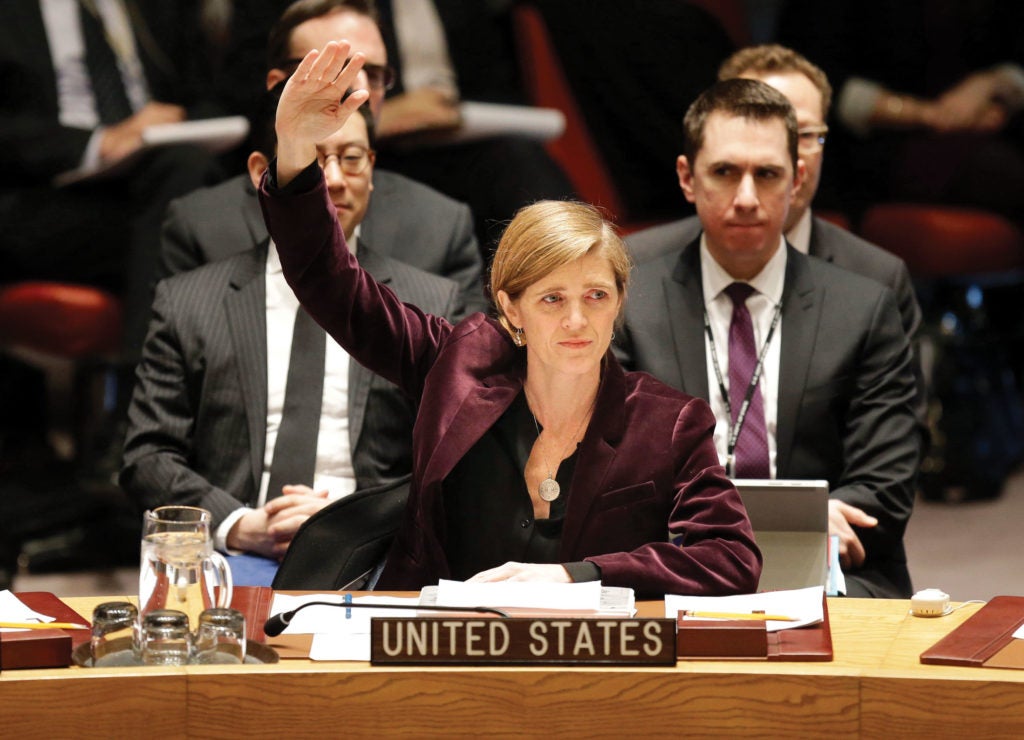
While attending HLS, for example, Power realized that she was not interested in sitting for the bar. “That was very freeing for me,” she says. “I just treated the experience as this amazing bounty.” She took courses on negotiation, never imagining that one day she would be an ambassador. In a class she took on the ethics of the use of force, Power wrote a paper that would become the earliest beginnings of “A Problem from Hell,” drawing on her coursework in international law.
“The most lasting impact of my time at law school is that it taught me how to step outside myself and think through any counterargument in an equally forceful way,” she says. That skill made the argument and writing in “Problem” “tighter,” she says, and was also helpful later on: “In government, people of very similar values and worldviews can come to such different conclusions about what should be done. If you’ve thought about those other, different perspectives in advance and armed yourself to address them, you can be much more effective.”
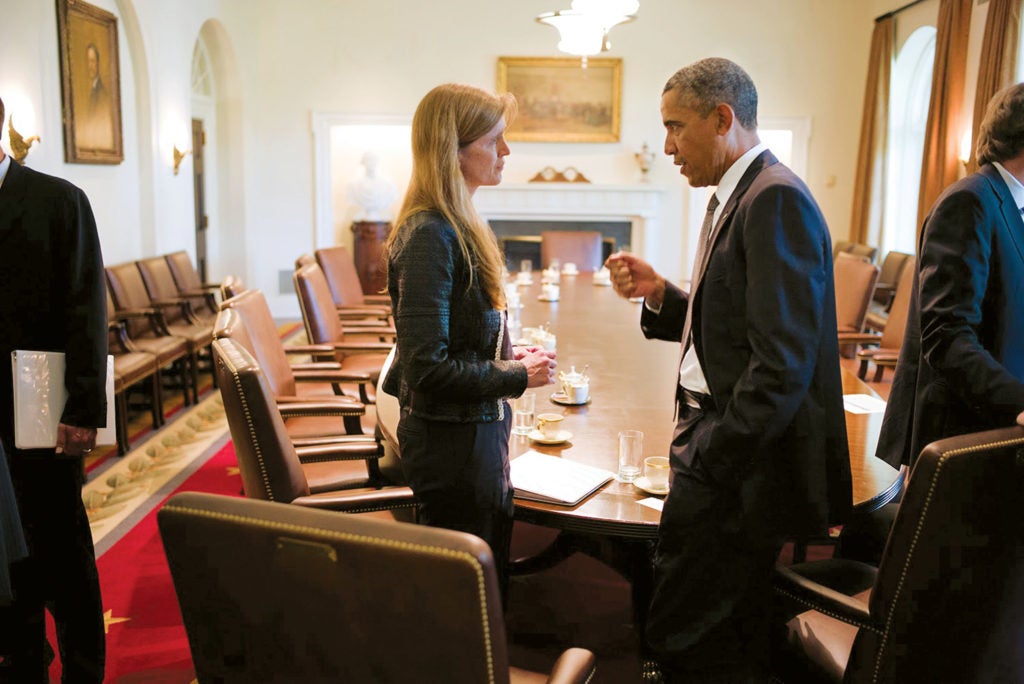
For anyone who has ever wanted to be a fly on the wall in high-level government meetings, Power’s newest book offers a blow-by-blow view into how the Obama administration arrived at its position on a number of critical international challenges, including its response to Libyan leader Muammar el-Qaddafi’s assault on his political opponents and to Syrian President Bashar al-Assad’s use of chemical weapons against his own citizens.
Power vividly depicts the compromise, heartache, and exhilaration of working on these and many other issues. “I had gone from being an outsider to an insider,” she writes. “From within government, I was able to help spur actions that improved people’s lives. And yet we were failing to stop the carnage in Syria. I was at risk of falling prey to the same mode of rationalization I had assailed as an activist.” Even so, Power makes it clear that the “education” referred to in her book’s title is not the story of an idealist reformed by the harsh forces of the real world. The reality of her experience—of her education—unfolds through the stories she tells, which are full of the complexities, compromises and nuance of day-to-day life.
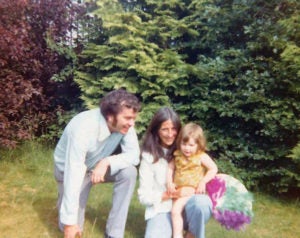
Power includes all aspects of that life, too, writing of the loss of her father to alcoholism, her struggle with anxiety attacks and her attempts at therapy. We’re there as she falls in love with Cass Sunstein ’78, a colleague from the Obama presidential campaign and now on the HLS faculty, and for the joyful birth of their son, Declan, as well as the sorrow of repeated miscarriages before the birth of their daughter, Rían. We learn what it’s like to raise children at the former U.N. ambassador’s residence in the Waldorf Astoria hotel, and how punishing a career in government can be to any semblance of “work-life balance.”
“I lived in a privileged position. So many people don’t find themselves with a sane level of support,” Power says. “Even so, I felt the best contribution I could make was to simply show, as well as tell, that all we can do is our best.” Today, Power is enjoying more of that ever-elusive “balance.” A die-hard baseball fan, she serves as her son’s warmup pitcher for an hour every morning before he goes to school. This spring, she is teaching two courses: Geopolitics, Human Rights, and the Future of Statecraft, and, with Sunstein, Making Change When Change is Hard: the Law, Politics, and Policy of Social Change.
Not surprisingly, Power doesn’t have a ready answer to the question of where she’ll be focusing her energy in the years ahead. “I have no one-year plan, never mind a five-year plan,” she says. Instead, she will continue to apply the “X test” to whatever opportunities might come her way. “You’d be amazed by the things that can happen if you just keep rolling and learning,” she says.
